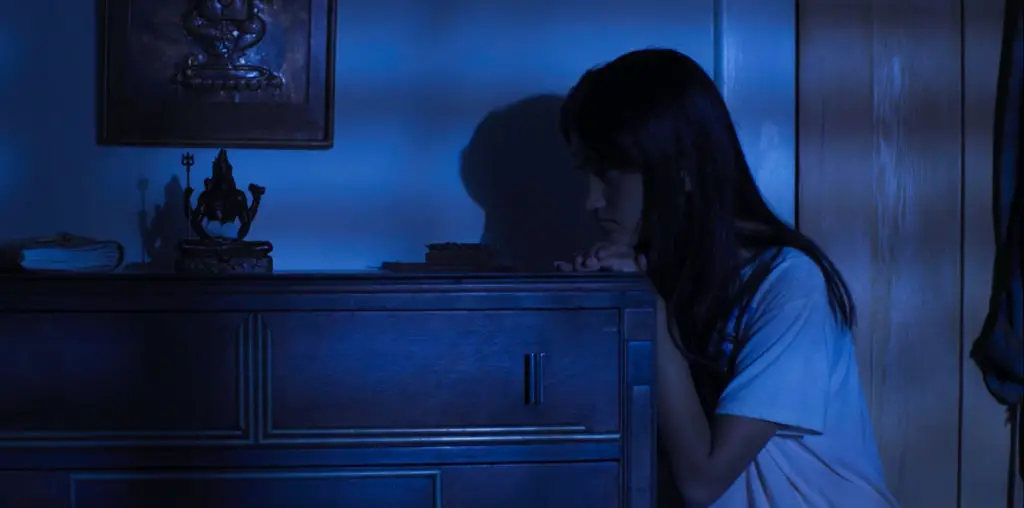
Based on the best seller by Philip Roth, “The Human Stain” is a provocative illustration of public opinion at its worst. When an esteemed classics professor is accused of a making a racist statement, rather than analyze the facts and proceed cautiously, the university forces him to resign. His career, marriage, and life are forever in ruin. Academy Award winning director Robert Benton (Kramer vs. Kramer) assembles a terrific cast to relay the allegory of Coleman Silk, a private man whose life is altered by a false sense of righteousness. Tragically engaging, “The Human Stain” is a somber look at cause and effect; in particular, it’s a parable about how a society’s beliefs and morals can mask the truth, sometimes for an entire lifetime.
Coleman Silk is a well-respected professor and dean of the prestigious Athena College in small town New England. Once an undefeated welterweight boxer known as Silky Silk, Coleman has earned his keep, working his way up through the ranks at the college and hiring professors, like Yale literary theorist Delphine Roux, who share in his passion. At 71 and nearing retirement, however, things take an unexpected turn. During a routine class, Silk innocently refers to two absent students as “spooks,” ignorant of fact that the two students are black. Immediately, the allegations of racism force Coleman to resign. But in the process, his friends turn against him, his wife passes away from the strain, and he begins a tumultuous affair with a 34-year-old janitor and postal worker named Faunia Farley.
The relationship between Coleman and Faunia is an odd one. She’s more than half his age, was abused growing up, has a husband who stalks her, is simplistic and illiterate, and lives a carefree and sexually open lifestyle. Coleman, on the other hand, is a widower, a highly sophisticated intellect, and lives with a secret he’s kept for over 50 years.
Living in misery after the death of his wife, Coleman seeks out Nathan Zuckerman, a famed local author, who lives a quiet life in seclusion. Knowing Zuckerman has been struggling to find that next great idea, Coleman offers his story to help. Despite initial reservations, Zuckerman comes to admire Coleman, learns about his passionate affair with Faunia and his previous loves, his career as a boxer, his affinity for big band music, as well as those who have grown to despise him. As tension rises and secrets are revealed, many confrontations are inevitable – between past and present. And on a wintery, back country road, life and death are a human stain away.
“The Human Stain” represents the third chapter in a trilogy of award winning novels from Philip Roth. The previous two, “American Pastoral” (Pulitzer Prize) and “I Married a Communist” are connected by way of Nathan Zuckerman, Roth’s alter ego, who acts as the sounding board for his main characters. It is Zuckerman who must reconstruct their stories, stories that seem normal and peaceful on the surface, but underneath reek with an undercurrent of grief, deception, and violence. In “American Pastoral,” Seymour “the Swede” Levov is considered the Golden Boy, a high school sports star and intellect who has everything going for him until his daughter ruins his chance for happiness by committing a political act of violence. In “I Married a Communist,” Ira Ringold, a famed radio announcer and political activist is brought to ruin by his wife who betrays him by publishing a paper about his supposed Communist ways. Now, with the “The Human Stain,” Roth’s character Coleman Silk is brought to ruin by a perceived racial slur that might not have been racist at all.
The film takes place during the summer of 1998, the summer of the Bill Clinton and Monica Lewinsky scandal. It is here where the book and the film take their name. In fact, director Robert Benton sets the tone by opening with a conversation among students at Athena College surrounding the nuances of the case. It’s this lascivious interest that occupies most Americans minds, even in a small town community. And it’s this preoccupation that sets the stage for Coleman’s ironic conundrum – he embodies the spirit of Achilles and the Greek/Roman tragedies that he teaches.
Nicholas Meyer, known primarily for his work in the Star Trek universe, lends his screenwriting credibility to Roth’s delicate human drama. And for the most part, he succeeds. Each scene is enticing, draws you in, and tackles the verbal foreplay from the book nicely. But to his misfortune, there are no special effects that can be inserted in between lines to allow for clean transitions. Throughout the film, the pieces don’t blend well together and the logic is trifling. In particular, the effort to fill in Coleman’s past almost feels like a separate story arc all together. Unrelated, the flashbacks occur intermittently and outlast their welcome.
“The Human Stain” is a great acting showcase. The quartet of Anthony Hopkins, Nicole Kidman, Ed Harris, and Gary Sinise is enough to warrant a viewing. And Wentworth Miller as the young Coleman Silk gives an understated, pent up emotional performance that earns your pity. But like director Robert Benton’s previous work, “Twilight,” the film suffers because of all this talent. Sadly, the main cast has very little to do. Occasionally, each has their moment: Hopkins defending his story in front of Sinise, Kidman informing Hopkins about her mangled past, Harris’ unsettling reactions to his interrogator, and Sinise matching wits with Harris. There’s even a wonderfully whimsical scene involving Hopkins and Sinise slow dancing to big band tunes. But despite all of their individual efforts, the story is too segmented to provide anything fulfilling as a whole. Especially annoying, the two main characters are unable to confront the demons that have plagued them all their lives.
“The Human Stain” is a complex story of American fabric – failed dreams and aspirations, futility and rage over social distortion, and suppressed feelings and emotions that go without communication. It’s a very powerful story, but one that is slow to develop, lingers too long in the past, and erects characters with very little resolution. Though the film was slightly miscast, I still found myself drawn to the story, the characters, and their lives. I felt guilty and ashamed for being sucked into the whirlwind, but it’s what we as a society have been doing for centuries – eviscerating individuals’ reputations and character in the public eye, oftentimes without regard to logic or reason. It makes for great drama, but unfortunately, once the cycle begins, there’s no way to remove the blemish.
Disagree with this review? Think you can write a better one? Go right ahead in Film Threat’s BACK TALK section! Click here>>>

